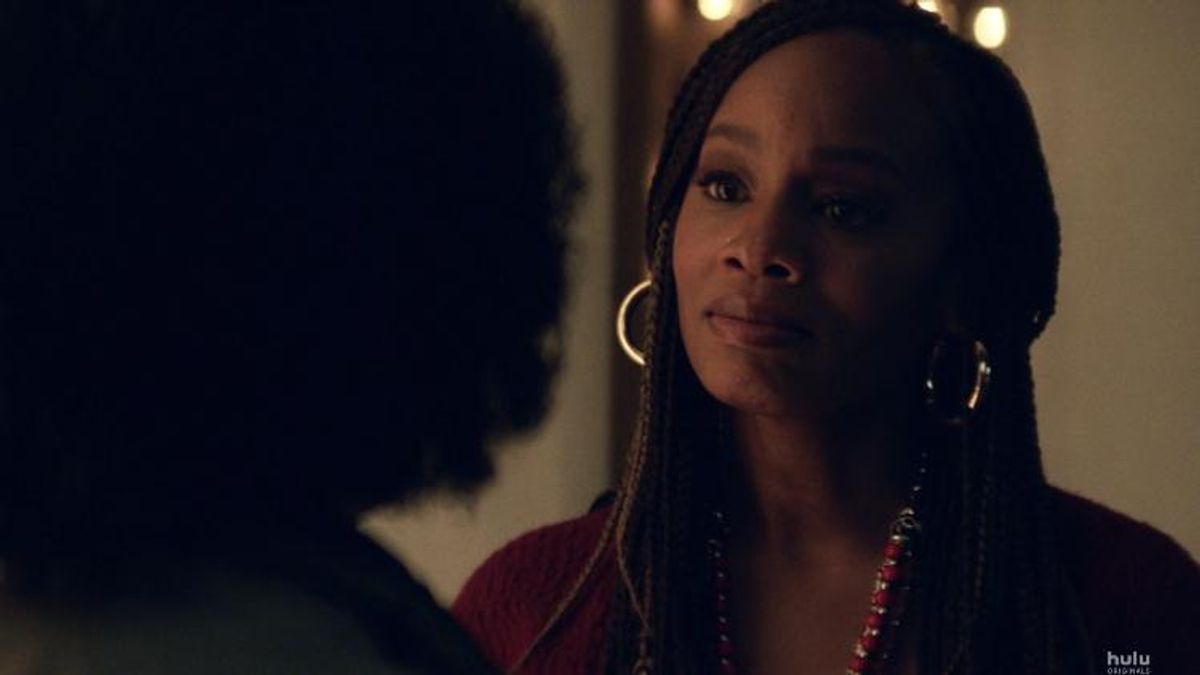Hulu's latest drama, Little Fires Everywhere, might be fueling the internet's love of suburban housewife drama, but it holds a special place in our hearts for its groundbreaking LGBTQ storylines.
Based on Celeste Ng's best-selling 2017 novel, the miniseries depicts the clash of the seemingly perfect Richardson family and the mysterious Warren family. Reese Witherspoon plays Elena Richardson, the strictly by-the-book mother of four whose dissatisfaction with her life seeps through the surface of suburbia. When nomadic single mother Mia Warren (Kerry Washington) comes into town, the two families become intertwined so intricately that it can only end in disaster.
While the first five episodes have their share of Washington versus Witherspoon drama, love triangles, '90s cell phones, stolen babies, and teenage pregnancy, episode 6, "The Uncanny," is a flashback to the life-altering decisions both Mia and Elena made in their early adult lives. Elena, played as a young woman by AnnaSophia Robb, had left the love of her life in Paris to come back to Ohio and follow the matrimonial plan laid out for her. But always following the rules hasn't made her happy, and her picture-perfect life begins falling apart.
Tiffany Boone, playing young Mia, channels Washington's mannerisms so well that you might have to do a double take. Mia leaves her religious, immigrant family for art school in New York City but struggles to pay tuition. When the bills become overwhelming, a drastic method of making quick cash seems to be the only way out. Through her financial struggles, she builds an unlikely romance with her art professor Pauline Hawthorne, played by Tony Award winner Anika Noni Rose.
Pauline helps Mia tap into her innermost needs and desires, and as the women's relationship becomes intimate, romantic feelings emerge. "I was sort of the inspiration for Mia to really grab ahold of her artist self," Rose told Bossipof her character. "You're going to get to see our relationship evolve as student/teacher and then student/friend when you realize you have something in common with somebody who sees you and believes you, which is what Mia got" from Pauline.
For Boone, Mia and Pauline's relationship is "a very complicated thing, because there is a maternal element there," she explained to O, the Oprah Magazine. "Mia, she had such a fraught relationship with her mother -- she never felt truly seen. Then she meets Pauline, someone who really sees her, understands her, supports these decisions that she's making. This relationship that she's been looking for with her mother is suddenly there with Pauline."
She continued, "In an earlier script, Mia says, 'You're like a mother to me. Or a friend. Or a mentor. What is it?' All of those things, together with Mia being in a vulnerable position, pregnant and alone -- I think that's what makes her fall for Pauline. I can't speak for what Pauline sees in Mia -- maybe a little bit of herself, and someone she wants to take care of. That's how I think they fall for each other."
The presentation of their love story is subtle, but the power of seeing two black women in love on our television screens is momentous. Through their relationship, we also discover the backstory behind Mia's prized possession, a stunning black-and-white photograph of her pregnant in a bathtub. Mia and Pauline's relationship is gentle, understanding, and poignantly brought to life by Boone and Rose.
The end of their story will break many hearts, but that doesn't make it any less stunning to watch.
The first six episodes of Little Fires Everywhere are streaming on Hulu now. Catch new episodes every Wednesday.


















































































Fans thirsting over Chris Colfer's sexy new muscles for Coachella